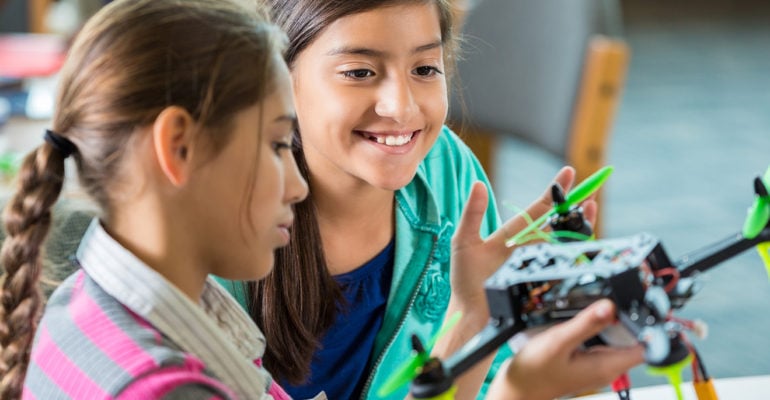Science, technology, engineering, and math are more important than ever, so we’ve put together a list of books to encourage girls to persevere in these subjects.
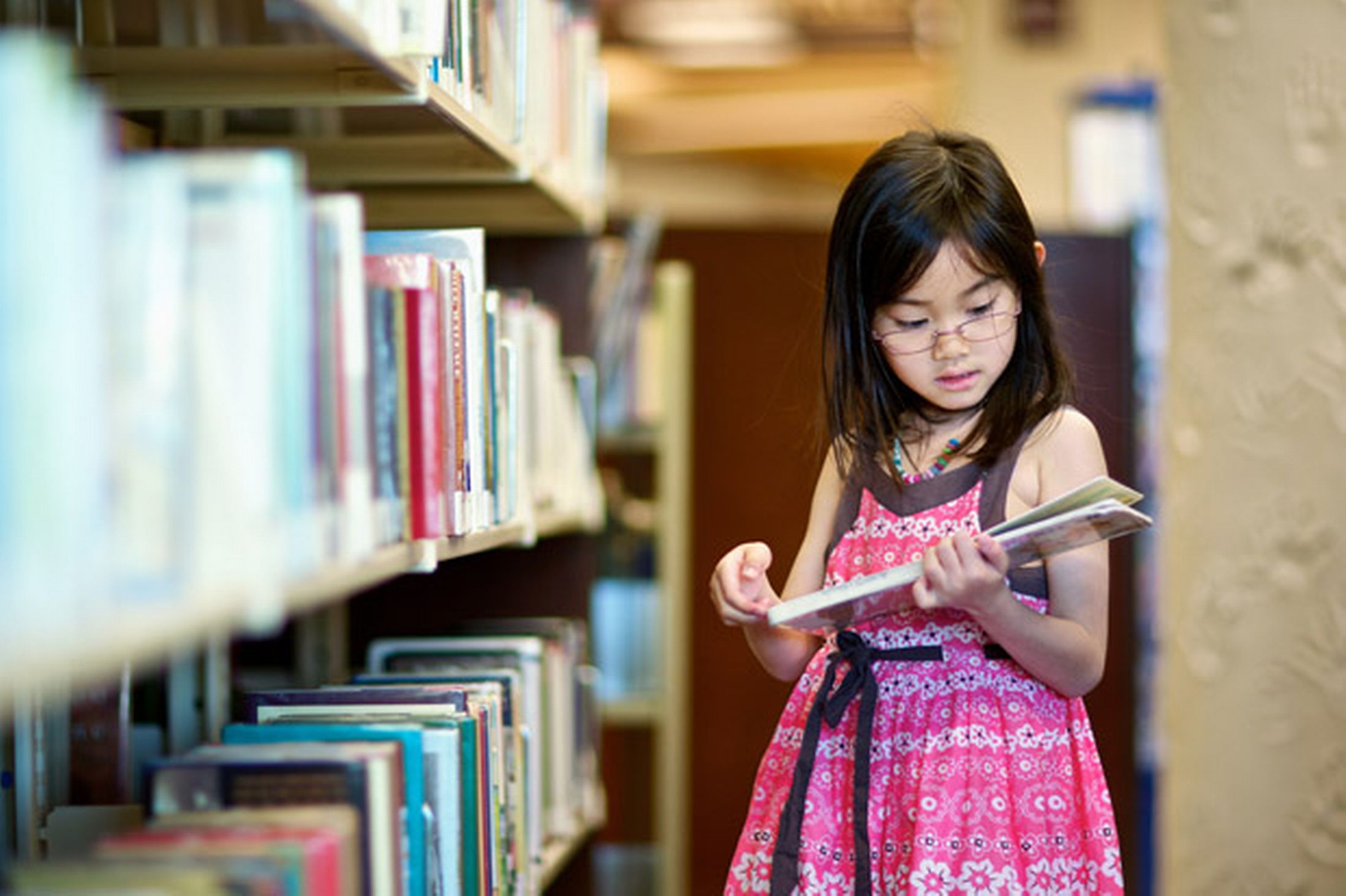
Representation matters: Girls do better on science tests when their textbooks include images of female scientists. And a 2017 survey by Microsoft found that girls in Europe begin to show interest in science, technology, engineering, and math (STEM) fields at 11 years old but lose it at around 15—and a lack of female role models is one reason for the drop in interest.
That’s why we’ve created this list of books showing girls and women who are passionate about STEM fields. After asking librarians for recommendations, pulling still more from School Library Journal, and checking best-seller and award lists, we selected picture books, biographies, novels, and memoirs appropriate for kids from kindergarten to 12th grade. These books—most of which were published in 2016—represent a wide range of STEM fields, from marine biology to volcanology to math.
You’ll find recommendations for lower elementary, upper elementary, middle school, and high school. For each book, we list the appropriate grade levels, and the Lexile measure when possible.
KINDERGARTEN TO GRADE 3
Rosie Revere, Engineer
Andrea Beaty’s New York Times best-selling picture book explores growth mindset, perseverance, and failure. Rosie Revere wants to create a contraption that flies, but it only hovers. Her great-great-aunt, Rosie the Riveter, describes her failure as a success and tells her, “You can only truly fail if you quit.” (Grades K and up; Lexile measure: AD860L)
Ada Twist, Scientist
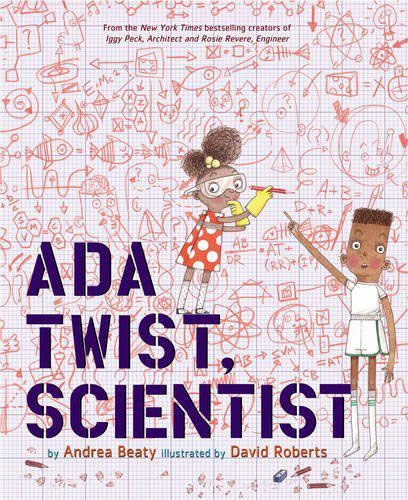
Ada Twist, Scientist also by Andrea Beaty, follows Ada Twist, a young black girl who uses science to explore her world. Ada’s curiosity takes her on a journey to uncover the source of a horrible smell in her house. Through asking questions, experimenting, and gathering facts, Ada realizes that some questions lead to more questions rather than answers. (Grades K–2; Lexile measure: 550)
Swimming With Sharks: The Daring Discoveries of Eugenie Clark
Heather Lang’s illustrated biography chronicles Japanese-American Eugenie Clark’s lifelong fascination with sharks and her journey to becoming a marine biologist in the 1940s. Through her curiosity and research, Clark disproved the popular opinion that sharks were dangerous killers. (Grades K–3; Lexile measure: 770)
GRADES 4 TO 6
The Fourteenth Goldfish
Three-time Newbery Honor winner Jennifer L. Holm introduces young readers to the world of science through fifth grader Ellie. When she meets Melvin, a teen who looks like her scientist grandfather, she wonders whether Grandpa really did discover how to reverse the aging process. The book explores themes of family, friendship, life, death, and what’s possible through science. It includes a gallery of scientists and other STEM resources. (Grades 4–7; Lexile measure: 0550)
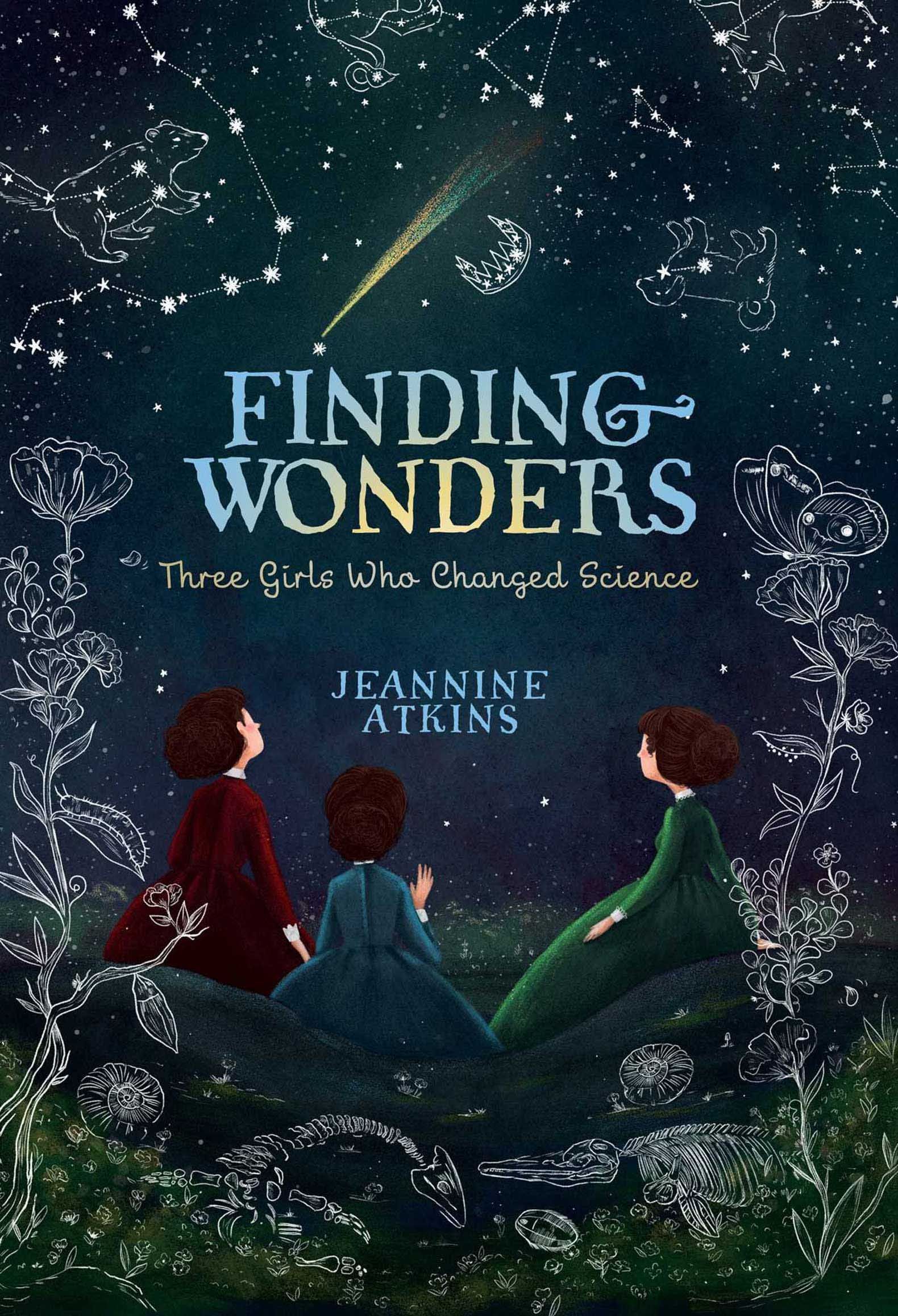 Finding Wonders: Three Girls Who Changed Science
Finding Wonders: Three Girls Who Changed Science
In this novel written in verse, Jeannine Atkins shares the lives of three real-life scientists: entomologist Maria Merian (1647–1717), paleontologist Mary Anning (1799–1847), and astronomer Maria Mitchell (1818–89)—all of whom were interested in science from childhood on. (Grades 4–8)
Women in Science: 50 Fearless Pioneers Who Changed the World
In this beautifully illustrated book, Rachel Ignotofsky highlights 50 women from around the world who impacted STEM fields from A.D. 400 to the present. Readers will find geneticists, volcanologists, and primatologists, as well as mathematicians and chemists. A historical timeline notes pivotal moments for women in STEM. The book includes statistics showing the gender gap in the STEM workforce, an illustrated glossary, and other resources. (Grades 6 and up)
GRADES 7 TO 8
Radioactive! How Irène Curie and Lise Meitner Revolutionized Science and Changed the World
Winifred Conkling’s nonfiction narrative profiles two female physicists whose discoveries paved the way for nuclear energy—and the atomic bomb. Set in the 1930s, this book is a combination of history and suspense, and details the glass ceiling of a male-dominated field. Educational sidebars throughout the book explain the science. (Grades 7 and up; Lexile measure: 1160L)
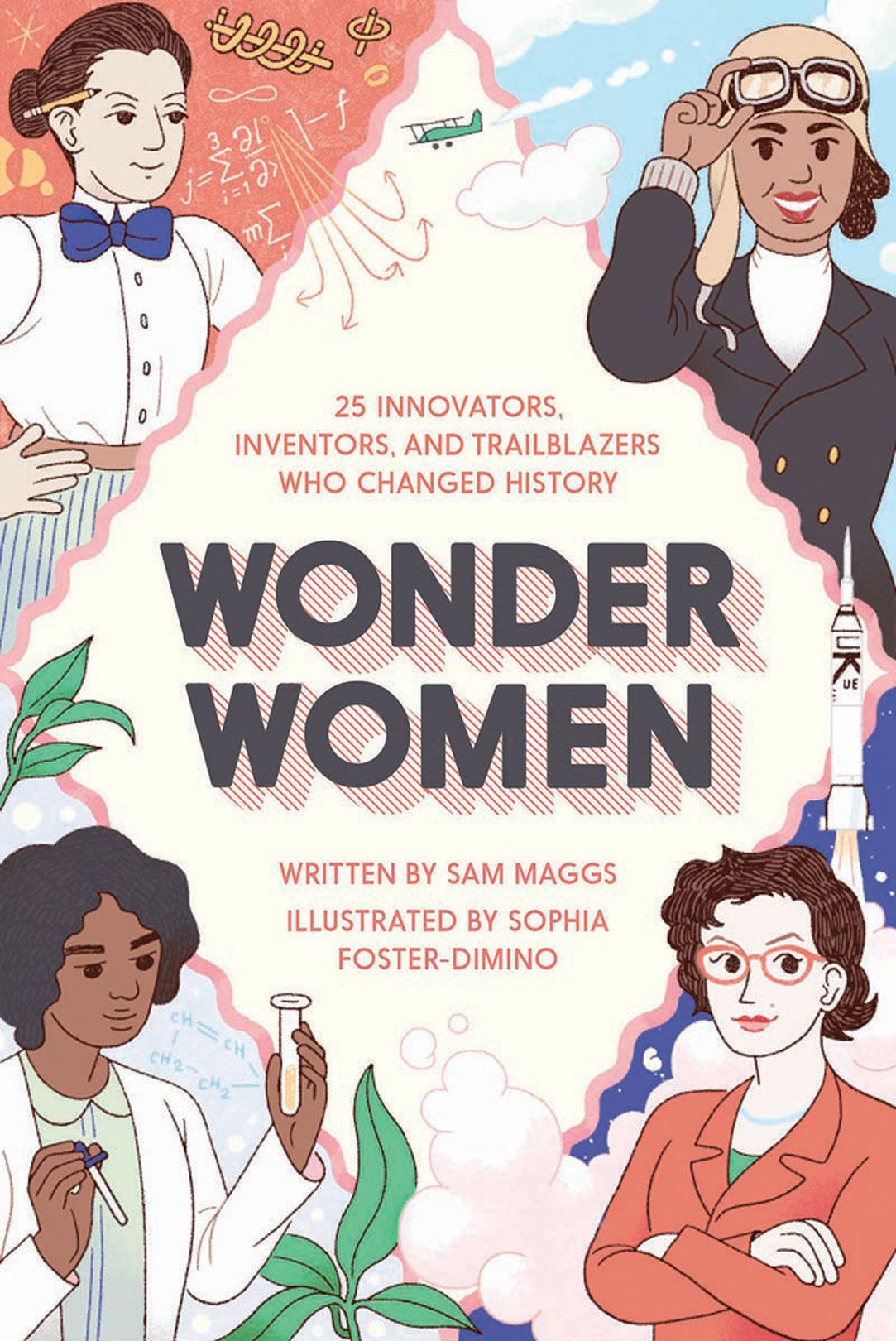 Wonder Women: 25 Innovators, Inventors, and Trailblazers Who Changed History
Wonder Women: 25 Innovators, Inventors, and Trailblazers Who Changed History
Sam Maggs, a writer who frequently explores what it means to be a woman in geek culture, uses illustrated biographies to examine the lives of scientists, engineers, inventors, and more. With a dash of humor, references to pop culture, and a conversational tone, Maggs captures the amazing achievements of women throughout history. (Grades 7 and up)
3:59
Josie Byrne and her doppelgänger, Jo, live in different universes that open to each other every 12 hours, at 3:59. In this science fiction/horror story by Gretchen McNeil, Josie believes she’s just dreaming this alternate world until she switches places with Jo. Josie and Jo realize that their worlds are in danger, and use physics to save them both. (Grades 8–11)
GRADES 9 TO 12
Lab Girl
Winner of the 2016 National Book Critics Circle Award for autobiography and noted by Time, Entertainment Weekly, The Washington Post, The New York Times, and Amazon as a best memoir or best book of 2016. Hope Jahren chronicles her lifelong passion for nature and science. Her memoir explores her relationship with her parents and the impact it had in cultivating her love of science as a child, and how her passion for plants and science gave her a deeper insight into herself. (Grades 9–12; Lexile measure: 1240L)
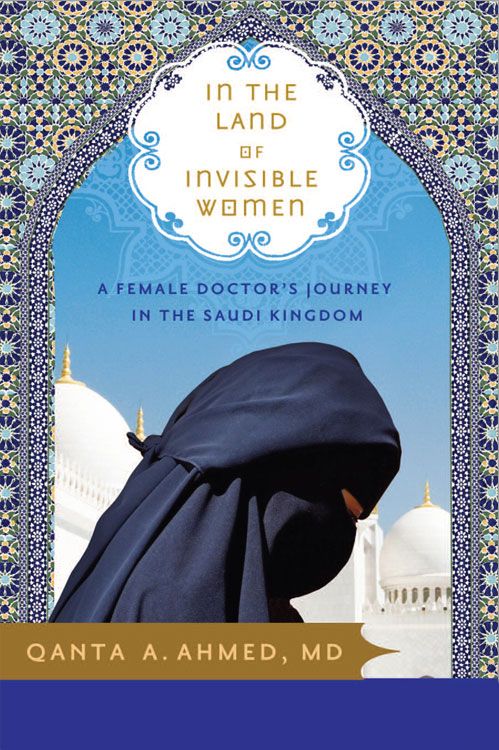
In the Land of Invisible Women: A Female Doctor's Journey in the Saudi Kingdom
This memoir by Qanta A. Ahmed, a British Muslim doctor, begins in the late 1990s when her application to renew her U.S. visa is denied and she accepts a job in Saudi Arabia. Though excited about the prospect of forming a deeper connection to her faith, she struggles with being a feminist, a doctor, and a Western woman living and working in a country that’s deeply oppressive to women. (Grades 9–12)
Hidden Figures
Recently adapted to film—with Oscar nominations for best picture and best adapted screenplay—Margot Lee Shetterly’s nonfiction book depicts the lives of four black women who, as mathematicians and engineers, helped send the first American astronaut into space. Katherine Johnson, Dorothy Vaughan, Mary Jackson, and Christine Darden fought to progress up the ranks at NASA in the 1950s. (Grades 9–12)
Discover more about STEM!
Check our products page and start your lessons with RobotLAB and our learning Platform EngageK12!
RobotLAB products Take me to Engage! K12
